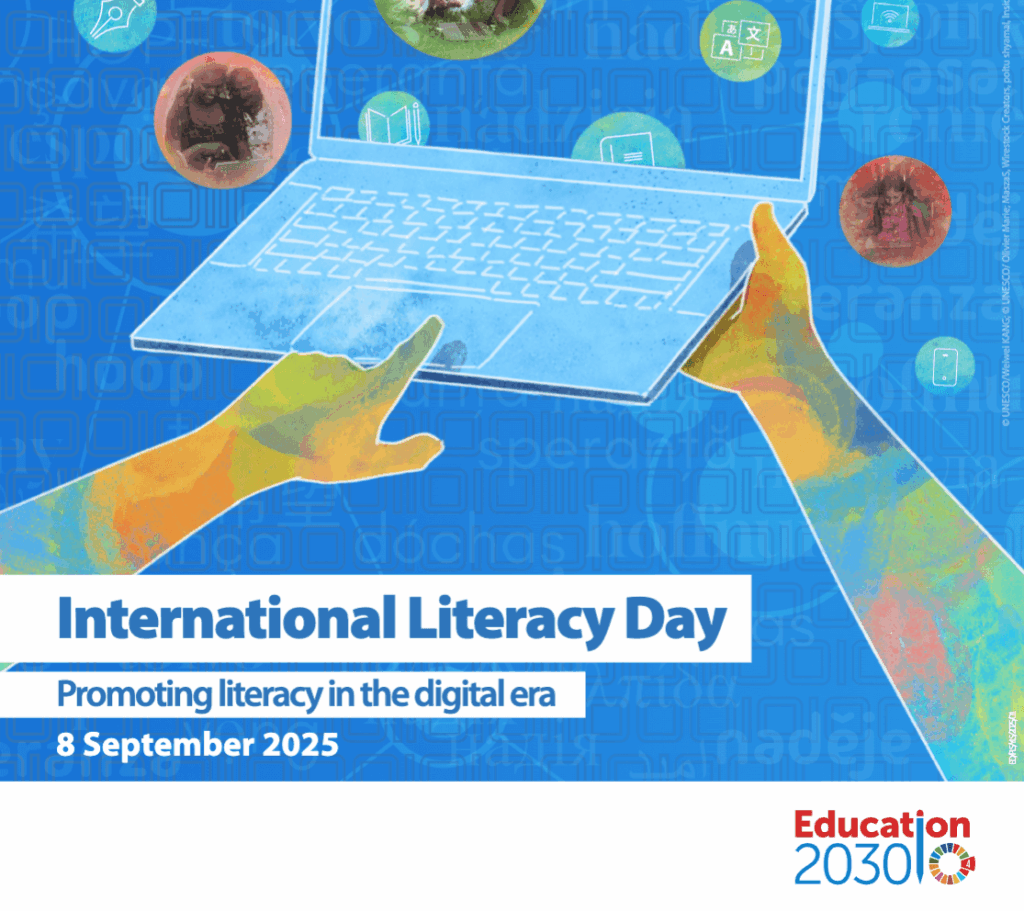
Harnessing the Digital Era to Unlock Literacy for All
Written by By Jessica Rothenberg-Aalami
Published September 8, 2025
Each year on September 8, the world comes together to mark International Literacy Day, a day first proclaimed by UNESCO in 1967 to remind us of literacy’s power to transform lives and societies. This year’s theme—Promoting Literacy in the Digital Era—underscores an urgent reality: literacy is not confined to reading and writing on paper. Today, it extends to navigating digital environments, critically evaluating information, creating responsibly, and engaging meaningfully with others across digital spaces.
At Cell-Ed, this is more than a theme. It is our mission. Since 2014, we’ve pioneered mobile-first, micro-learning solutions that meet learners where they are—on any phone, with or without internet access. By delivering text- and audio-based lessons in bite-sized formats, we provide easy access for adults with low literacy or limited digital skills to build confidence, acquire essential workforce and health knowledge, and participate fully in their communities.
Why Digital Literacy Matters More Than Ever
The digital age brings tremendous opportunities for learning, but it also carries risks of exclusion, bias, and inequity. Without intentional design, those who most need access to education are the first to be left behind. UNESCO’s call this year is clear: to harness technology as a bridge, not a divider, to ensure literacy remains a right, not a privilege.
For the populations Cell-Ed serves—farmworkers, refugees, frontline workers, and underserved communities—literacy is the foundation for opportunity. Digital literacy, in particular, is a lifeline to jobs, healthcare, civic participation, and resilience in a rapidly changing world.
Cell-Ed’s Impact at a Glance
Over the past decade, Cell-Ed has demonstrated how simple, accessible technology can deliver outsized results:
- 10+ million learners in 54 countries have accessed Cell-Ed’s programs.
- Learners gain skills 84% faster than through traditional approaches.
- More than 1000 global partners—from libraries and nonprofits to employers and government agencies—trust Cell-Ed to deliver equitable learning at scale.
These numbers reflect more than outcomes; they represent millions of individual stories of empowerment. Stories of parents learning English to support their children in school, workers upskilling to secure better jobs, and communities strengthening resilience through health and digital literacy.
Building the Future of Inclusive Literacy
As we look ahead, Cell-Ed renews its commitment to advancing literacy in the digital era by:
- Reducing Digital Divides
Ensuring that lack of internet or devices never prevents someone from learning. - Creating Lifelong Learning Ecosystems
Designing flexible, relevant, and learner-centered programs that adapt to people’s lives and work. - Collaborating Globally
Partnering with governments, NGOs, employers, and communities to scale literacy as a public good.
These commitments align directly with UNESCO’s vision of making digital tools inclusive, meaningful, and empowering for all.
A Call to Action
On this International Literacy Day, we invite policymakers, educators, and innovators to join us in reimagining literacy for the digital age. The task before us is both urgent and inspiring: to ensure that every person, regardless of background or resources, can unlock the power of literacy to shape their future.
At Cell-Ed, we know this is possible. Every message sent, every call completed, every micro-lesson mastered is proof that with the right tools, learning is truly for everyone.
Together, let’s continue to build a world where literacy opens doors to dignity, opportunity, and equity—for all.
Jessica Rothenberg-Aalami
CEO & Founder, Cell-Ed
If you’d like to learn more about how you can enrich your community by partnering
with Cell-Ed, click below to get started.